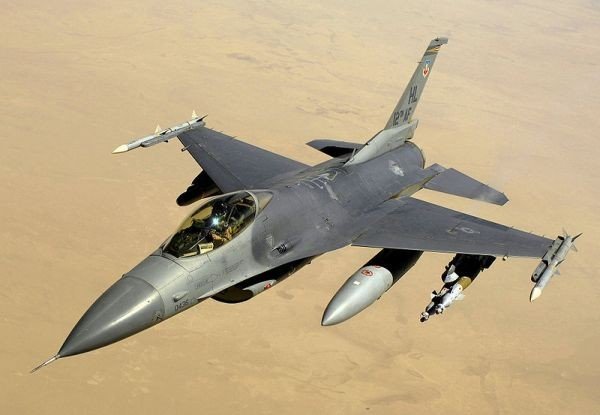TEL AVIV, Israel, Dec. 12 (UPI) -- The Israeli air force is upgrading its Lockheed Martin F-16C/D jets amid growing concerns the delivery of 20 of the U.S. plane maker's problem-plagued F-35 stealth fighters ordered by the Jewish state will be delayed past 2017.
The Jerusalem Post reported Monday that worries about the F-35 are so pervasive that upgrading the F-16C/D Fighting Falcon variants, known as "Barak" in the air force, began in 2010 with the installation of new avionics and other systems.
That program has been expanded in recent weeks as part of a plan to extend the aircraft's operational lifespan.
The air force has around 100 F-16 C and D ground-attack models. It also has 106 F-16 A/B fighters and 101 F-16I Sufa jets, a more advanced model customized for Israel's operation requirements.
The Post reported that the air force is upgrading the F-16's flight control system as well as its central display unit in the cockpit. The aircraft will also be fitted with new high-resolution screens designed to improve the pilot's situational awareness.
Pilots will also be equipped with a display and sight helmet system, designed by Elbit Systems, Israel's leading military electronics maker. This enables pilots to aim their weapons simply by looking at targets.
The F-16s won't be stealthy like the F-35 Lightning, also known as the Joint Strike Fighter, but their capabilities will be sufficiently enhanced that the air force will be able to maintain its long-held qualitative edge over its regional adversaries, particularly Iran.
The F-35 development program at Lockheed Martin has been repeatedly hit by delays and major cost overruns since 2002.
Israel's Defense Ministry signed a $2.75 billion contract with Lockheed Martin in August 2010 for 20 F-35s, enough for one squadron. Delivery of the aircraft was to commence in 2017, with pilots going to the United States for training in 2016.
But that timetable is in jeopardy. After cracks were discovered in some aircraft, the Pentagon is considering slowing development of the JSF.
"I believe it's wise to temper production for a while here, until we get some of these heavy years of learning under our belt and get that managed right," Vice Adm. David Venlet, the Pentagon's director of the F-35 program, said earlier this month.
Jane's Defense Weekly reported last week that a new U.S. Department of Defense technical report recommended slowing acquisition of the single-engine F-35 because of a "lack of confidence" in the stability of the aircraft's design.
Israel's Defense Ministry has budgeted for the purchase of another 20 F-35s for a second squadron under the military's multiyear procurement plan that begins in early 2012.
Ultimately, the Israelis want three squadrons of JSFs -- some 75 aircraft -- to form the spearhead of their airborne strike force.
The Pentagon has already approved the sale of 55 more of F-35s at an unspecified date.
Israel's big problem is that senior U.S. Air Force officers testified before Congress in November that the aircraft's development setbacks mean that it probably won't become operational with U.S. forces, including the U.S. Navy and the U.S. Marine Corps, until 2018.
Israel's air force commander, Maj. Gen. Ido Nehushtan, recently met with his senior officers regarding the reports the Pentagon was considering slowing development of the F-35.
Aviation Week reported recently that the U.S. Air Force plans to upgrade more than 300 F-16s currently in service, as well as some Boeing F-15 Eagles, to fill the operational gap.
The Israeli decision to upgrade its F-16C/D aircraft as a stopgap until the F-35 deliveries start presumably means that the possibility of acquiring new F-15 Eagles and F-16s to carry the air force over until the new jets arrive has now been set aside.
The F-35 squadrons, when they do reach Israel, will be deployed at the sprawling Nevatim Air Base in the Negev Desert. This is currently the home of several F-16 squadrons.















